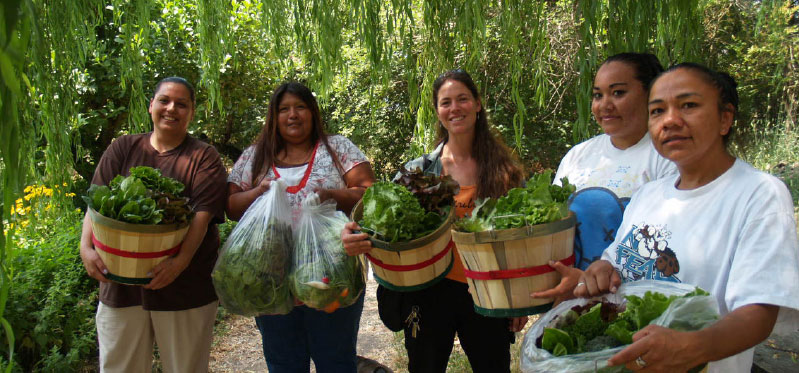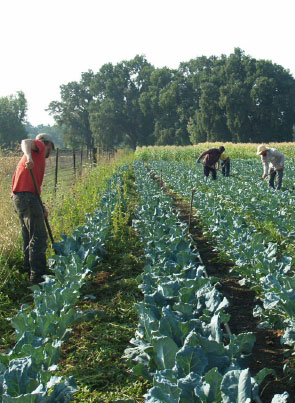Live Power Community Farm is a long-standing values-driven model for community supported agriculture. At LPCF, Stephen and Gloria lift the vocation of farming to an art of the land. They are supported by shareholders willing to bear the financial risk for their success. The benefits of this elegant economic model are: the farmers are fulfilling their life destinies; the community itself determines what is economically just and necessary out of recognizing how truly dependent we are on the value each member brings to the process—whether biodynamic farming knowledge or just plain money; and, collectively we are contributing to healing the earth. Better yet, the cost of a share tastes good, food is spirit, and compost is gold. This is life-affirming economics at its best and it’s hard to imagine how anyone would want it any other way.
—John Bloom
Live Power Community Farm CSA Member for 19 years
Director, Advisory Services, RSF | Innovations in Social Finance
Live Power Community Farm is a working example of an economic alternative to the conventional market-based system. Based on a direct association between producers and consumers, human beings (not
market forces) are at the center of the economic process, transforming it from automatic, unconscious activity to conscious activity that respects the needs of all involved—the producer, the consumer, and the physical and social environments.
The conventional economic food system is characterized by growers and consumers participating as separate, alienated, competing parties. The farmers are trying to get higher prices so they can stay in business while the consumers are trying to pay less to protect their private interests. Each party remains a faceless entity to the other. Often the result is strife, misunderstanding, and struggle.
In the associative economic system, however, growers and consumers shift from private interests to community interests and recognize that their interests are mutually supporting. For the consumers, taking care of their nourishment directly means taking care of the farm, the farmers, and the earth. Food isn’t simply a commodity to be grown for the least cost, evaluated only on price or appearance. Food does not go through the market system where the farmer typically recovers only ten cents of the retail dollar. Food becomes much more personal, part of people’s efforts to connect themselves with the land and society as creative and responsible stewards. As farmers, our survival depends not on the market, but on the strength and consciousness of our community, and that is the opposite of globalized anonymity and unaccountability. The dynamic of the associative economic relationship is one of cooperation, understanding, mutual support, and community.
We believe it is essential to develop and work within this new, more-conscious form of economic interrelationship in order to heal our social life and our agriculture. We can achieve truly sustainable agriculture only when we have a truly sustainable economic process as a base.
To embody these associative economic concepts in the operation of Live Power Community Farm, we have two meetings each year where the farmers and members meet and discuss each others’ needs as partners in the farm. The farmers present and update the goals, ideals, vision, and development of the farm. The farm’s operating budget is available to members so that questions about how the budget will be met—by equal division, bidding, or some other arrangement—can be discussed.
More can be learned about associative economies by studying the work of Rudolph Steiner, Trauger Groh, Gary Lamb, and the Center for Associative Economics.



